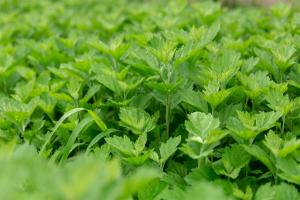What is an Industrial Plant?
Introduction
An industrial plant is a facility that produces goods using machinery, labor, and raw materials. These facilities can vary in size from small workshops to large factories and include a range of industries such as textiles, food processing, and chemical production.
Types of Industrial Plants
There are several types of industrial plants, including:
Manufacturing plants: These facilities produce finished goods from raw materials.
Chemical plants: These plants create chemical products for a variety of uses, including pharmaceuticals and fertilizers.
Petroleum refineries: These facilities process crude oil to produce gasoline, diesel fuel, and other petroleum-based products.
Food processing plants: These plants produce packaged foods, beverages, and other edible products.
Power plants: These facilities generate electricity for homes and businesses.
Components of an Industrial Plant
An industrial plant is made up of several components, which work together to produce goods efficiently. These components include:
Raw materials: These are the basic materials that are used to create finished products.
Machinery and equipment: These tools are used to process raw materials into finished goods. They can include conveyor belts, assembly lines, and specialized equipment such as industrial ovens and chemical reactors.
Workforce: The people who operate the machinery and equipment are an essential component of any industrial plant. Skilled workers are especially important in industries such as pharmaceuticals and chemical production, where precision is critical.
Management: Effective management is essential to ensuring that an industrial plant runs efficiently. Managers oversee production schedules, order materials, and ensure that safety and quality standards are met.
Challenges of Industrial Plant Management
Managing an industrial plant can be a challenging task. Some of the main challenges include:
Safety: Industrial plants can be dangerous places to work, with risks such as chemical spills, fires, and machinery accidents. Managers must take steps to minimize these risks to protect workers and prevent costly damage to the facility.
Regulations: Industrial plants are subject to a range of regulations from local, state, and federal governments. Managers must stay up to date on these regulations and ensure that their facility is in compliance.
Efficiency: Effective management is essential to running an industrial plant efficiently. Managers must carefully balance the need for productivity with the need to maintain quality standards and safety protocols.
Environmental concerns: Many industrial plants generate waste products that can be harmful to the environment. Managers must take steps to minimize their facility's impact on the environment by reducing waste, conserving resources, and implementing eco-friendly practices.
Conclusion
An industrial plant is a complex facility that requires careful management to operate efficiently and safely. By understanding the components of an industrial plant and the challenges that managers face, we can better appreciate the important role that these facilities play in our economy and society.

 how many times do yo...
how many times do yo... how many planted tre...
how many planted tre... how many pine trees ...
how many pine trees ... how many pecan trees...
how many pecan trees... how many plants comp...
how many plants comp... how many plants can ...
how many plants can ... how many plants and ...
how many plants and ... how many pepper plan...
how many pepper plan...
































